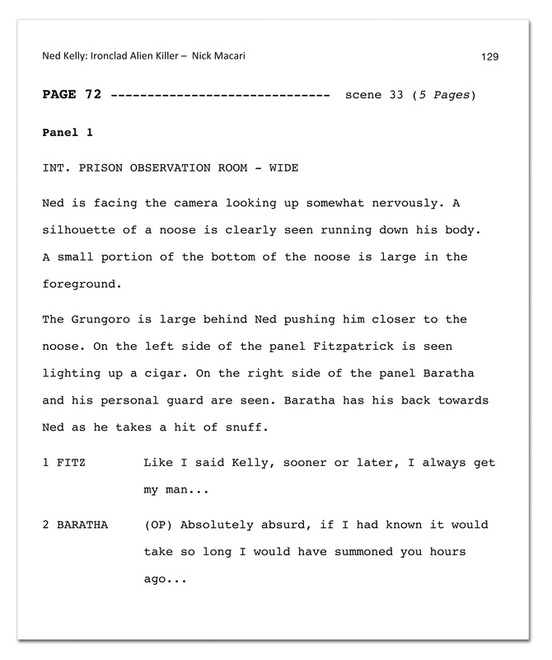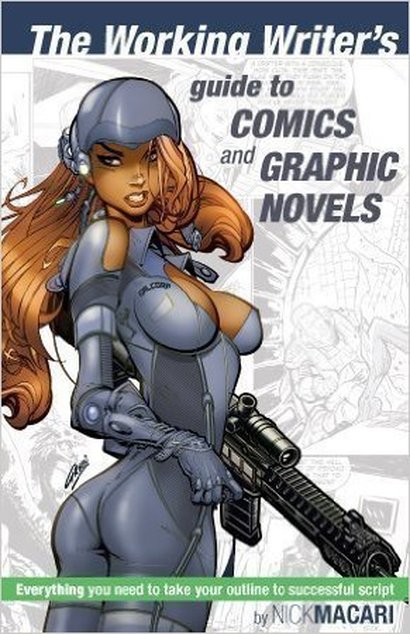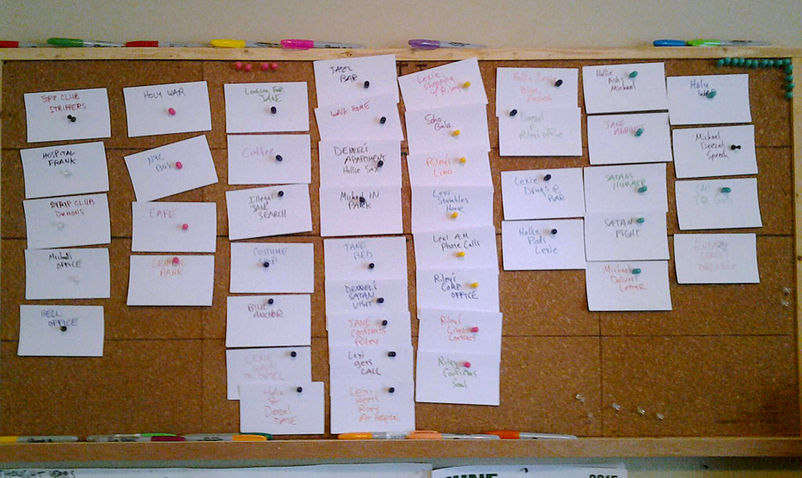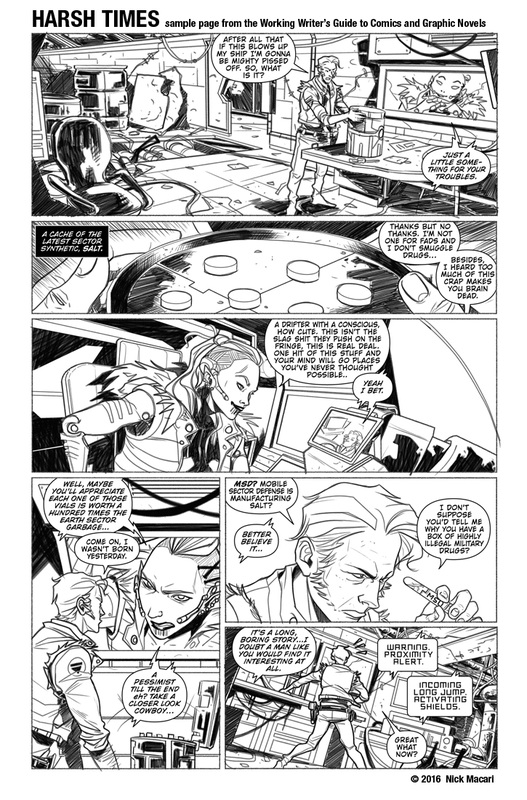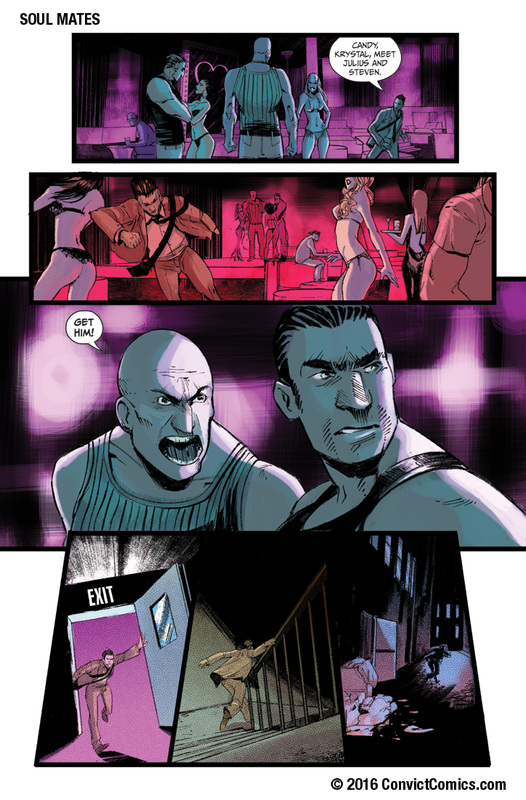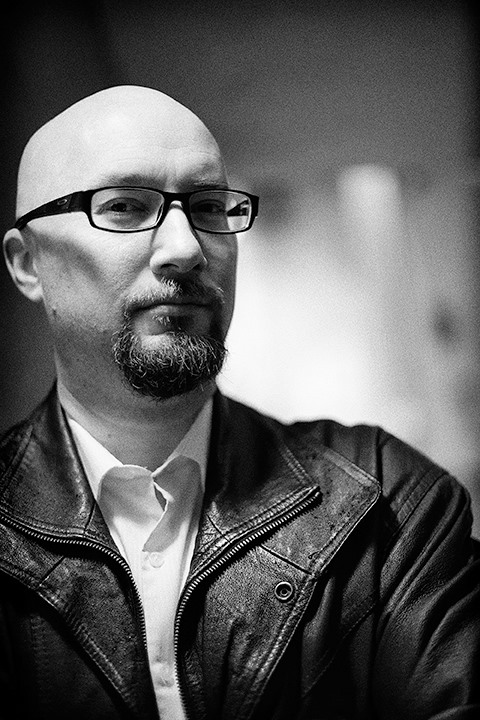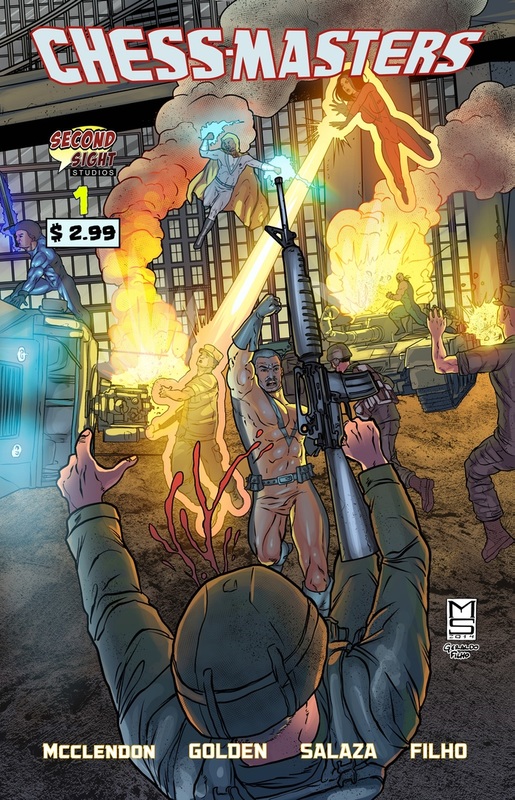By: Nicole D’Andria (Posted on January 22nd, 2016)
I spoke to the writer of The Working Writer’s Guide to Comics and Graphic Novels, Nick Macari. Nick has been a part of the comic book industry since the late 90’s. He is a freelance comic book writer, story consultant, developmental editor, screenplay writer, novelist and ghostwriter. His book is meant to be a useful guide to writing comics. However, in my extensive interview with him we cover a variety of useful know-how for comic writers, from writing to publishing to even consulting on other people’s projects.
Nick Macari
I spoke to the writer of The Working Writer’s Guide to Comics and Graphic Novels, Nick Macari. Nick has been a part of the comic book industry since the late 90’s. He is a freelance comic book writer, story consultant, developmental editor, screenplay writer, novelist and ghostwriter. His book is meant to be a useful guide to writing comics. However, in my extensive interview with him we cover a variety of useful know-how for comic writers, from writing to publishing to even consulting on other people’s projects.
Nick Macari
What is your background in comics?
Nick Macari: In the late 90's I put together an indy label called "Q" comics—yes, a nod to Star Trek there. I released a single fantasy title through Diamond, while working on a half dozen other titles. While "Varick" was well received (for an indy back then), the endeavor was fairly short lived.
Since then my career has been more in the background behind closed doors helping other independent and start up studios with their IPs. Last year (or maybe it was the year before now, brainpan ain't what it used to be), I finished a great graphic novel called Ned Kelly: Ironclad Alien Killer. The first couple of chapters are available free on drivethru and the full book should be available later this year. I also have a couple other series and books due out this year. I say due, because when you're working on other folks’ properties, you're never in control of release dates, and in the indy world time and money are factors in constant flux
Since then my career has been more in the background behind closed doors helping other independent and start up studios with their IPs. Last year (or maybe it was the year before now, brainpan ain't what it used to be), I finished a great graphic novel called Ned Kelly: Ironclad Alien Killer. The first couple of chapters are available free on drivethru and the full book should be available later this year. I also have a couple other series and books due out this year. I say due, because when you're working on other folks’ properties, you're never in control of release dates, and in the indy world time and money are factors in constant flux
What does this comic writer’s guide offer that others do not?
Macari: Simple. The 90 page guide only discusses writing comics. That's it. Now for many that might not sound like a big deal, but go buy some of the other comic writing books and you'll quickly find that only a small amount of the book is actually dedicated to writing technique. I'm not saying a lot of the books on the market don't have valuable info, on the contrary many of them are great... but, the writing craft information is often limited and buried underneath drawing technique, marketing strategies and industry history.
This book is for writers.
If you run over to a book store and look at a bible guide to Photoshop, from page one the book is telling you how to use Photoshop, what it can do, how to make it do what you want. These books don't go into why Photoshop was made, or art history. They have one purpose and one purpose alone.
That was the goal of this book.
This book is for writers.
If you run over to a book store and look at a bible guide to Photoshop, from page one the book is telling you how to use Photoshop, what it can do, how to make it do what you want. These books don't go into why Photoshop was made, or art history. They have one purpose and one purpose alone.
That was the goal of this book.
What would you say is the most important tip for comic book writers?
Macari: "Comic book writer" is a profession that covers a lot of real estate. You have writers at different levels of their career and then, of course, writing itself has a million-billion different facets—so I'm not sure it's possible to answer this question with one short piece of practical advice.
That said, in comic writing I see a lot of material that is incomplete. New writers tend to latch onto superficial parts of a story (costumes, powers, gadgets etc.) and they don't take the time to discover the real depth of their work.
Nine times out of ten this can be remedied by establishing a strong theme and deep, rich characters. So as a general tip, Theme and Characters—get those right first, before
you do anything else.
That said, in comic writing I see a lot of material that is incomplete. New writers tend to latch onto superficial parts of a story (costumes, powers, gadgets etc.) and they don't take the time to discover the real depth of their work.
Nine times out of ten this can be remedied by establishing a strong theme and deep, rich characters. So as a general tip, Theme and Characters—get those right first, before
you do anything else.
Since you’ve emphasized the importance of theme and characters, what are some of your favorite themes and characters in comic books and why are they your favorites?
Macari: Although a lot of current comics (and media) trend towards gritty, realistic, dark characters, I've always had an affinity for these kind of characters—ever since my teenage years. Tragic characters and anti-heroes typically have a lot of depth and emotional potential just waiting to be released, like a giant bomb. Ghost rider, Wolverine, Punisher, Conan... these are some of my favorite characters from Marvel.
As far as themes go, the big one that stands out, which everybody knows now since the movie, is Spider-Man's “with great power comes great responsibility.” I think that one stands out in my mind because as a kid, reading and seeing all these super heroes do their thing, this theme was one of the first that I remember that was saying, hey wait a second there's another side to being a hero. There's a balance and no matter how strong or super you are, life still has challenges (or responsibilities) to deal with—in other words life isn't all sunshine and rainbows even when you're a super hero.
Another theme that stands out to me, in a similar vein, would have to do with duty and sacrifice, or more specifically with ROM's duty and sacrifice. Rom had to forgo his humanity (or alienity) and become fused with his suit of armor to defend his world from the Dire Wraiths. We all make sacrifices in jobs, family, and friends on a daily basis, so I think most everyone can directly relate to that.
In my own work I do a lot of development with freedom vs. tyranny and underdogs vs. favorites themes. Again these are core, fundamental aspects to the human condition that everyone can relate to in some manner. And the more the audience can relate to a theme, the more they'll be pulled into the story.
As far as themes go, the big one that stands out, which everybody knows now since the movie, is Spider-Man's “with great power comes great responsibility.” I think that one stands out in my mind because as a kid, reading and seeing all these super heroes do their thing, this theme was one of the first that I remember that was saying, hey wait a second there's another side to being a hero. There's a balance and no matter how strong or super you are, life still has challenges (or responsibilities) to deal with—in other words life isn't all sunshine and rainbows even when you're a super hero.
Another theme that stands out to me, in a similar vein, would have to do with duty and sacrifice, or more specifically with ROM's duty and sacrifice. Rom had to forgo his humanity (or alienity) and become fused with his suit of armor to defend his world from the Dire Wraiths. We all make sacrifices in jobs, family, and friends on a daily basis, so I think most everyone can directly relate to that.
In my own work I do a lot of development with freedom vs. tyranny and underdogs vs. favorites themes. Again these are core, fundamental aspects to the human condition that everyone can relate to in some manner. And the more the audience can relate to a theme, the more they'll be pulled into the story.
Having worked on multiple titles at a time, how would you recommend writers who struggle juggling several books at a time better handle such a situation?
Macari: Stay organized and write things down.
I'm notorious for getting ideas and trying to file them in my head. This worked better when I was younger, but even then, it still led to problems. Now, if I get an idea and I smell food shortly after, the idea is usually gone.
So I write everything down as soon as I can. And try not to scribble it on the back of a napkin, which you'll accidentally use then throw away. Keep a small day planner or spiral book and dedicate sections of it to each project you're working on.
Same thing with the computer, keep your folders organized and try to work clean. A desktop with 100 files on it is a real distraction.
When you're working on multiple projects, cork boards and dry erase boards become a life saver too. My walls are covered with them.
I'm notorious for getting ideas and trying to file them in my head. This worked better when I was younger, but even then, it still led to problems. Now, if I get an idea and I smell food shortly after, the idea is usually gone.
So I write everything down as soon as I can. And try not to scribble it on the back of a napkin, which you'll accidentally use then throw away. Keep a small day planner or spiral book and dedicate sections of it to each project you're working on.
Same thing with the computer, keep your folders organized and try to work clean. A desktop with 100 files on it is a real distraction.
When you're working on multiple projects, cork boards and dry erase boards become a life saver too. My walls are covered with them.
If you're working on multiple projects of your own—without pressing deadlines from an editor or publisher—it’s important not to lollygag.
If you let something sit for too long, I’'s easy to lose your train of thought when you go back to it. EVEN when you’re writing stuff down this can happen. Nine times out of ten, your notes are going to be a shorthand notation of your ideas and when you go back with that brief direction days or weeks later, you might just lose the nuance of the scene or what you intended to say.
Lastly and maybe the biggest point, you have to learn how to shut your brain off. At least with me anyway, I've had the hardest time in my adult life being able to turn off "work mode" when I'm not working. On the surface this might seem like a good problem to have, but really it isn't.
When you can master having truly free time when you have free time, your focus, clarity, creativity and productivity will shoot up the times when you're working. On the flip side, if you don't detach yourself from work when you're not in front of the computer, you run a real risk of hitting a wall and burning out. That's something you never want to have happen when you're surrounded by deadlines.
If you let something sit for too long, I’'s easy to lose your train of thought when you go back to it. EVEN when you’re writing stuff down this can happen. Nine times out of ten, your notes are going to be a shorthand notation of your ideas and when you go back with that brief direction days or weeks later, you might just lose the nuance of the scene or what you intended to say.
Lastly and maybe the biggest point, you have to learn how to shut your brain off. At least with me anyway, I've had the hardest time in my adult life being able to turn off "work mode" when I'm not working. On the surface this might seem like a good problem to have, but really it isn't.
When you can master having truly free time when you have free time, your focus, clarity, creativity and productivity will shoot up the times when you're working. On the flip side, if you don't detach yourself from work when you're not in front of the computer, you run a real risk of hitting a wall and burning out. That's something you never want to have happen when you're surrounded by deadlines.
While your book focuses on the writing rather than the publishing, you do have extensive knowledge of the industry. What are some important tips you think people should know about the publishing process?
Macari: I think the landscape of the comic industry is changing quite a bit. While the big publishers are still the gatekeepers of the uber successful properties, the internet, direct to consumer marketing, crowdfunding and digital comics are changing the playing field.
I was an independent back in the late 90s, we were there, but we were still playing by the old rules. Today, the rules have changed. It's truly possible to carve out a niche and hit the ground running doing your own thing.
And if you acquire a following first, there really isn't any limit to how successful you can be.
I was an independent back in the late 90s, we were there, but we were still playing by the old rules. Today, the rules have changed. It's truly possible to carve out a niche and hit the ground running doing your own thing.
And if you acquire a following first, there really isn't any limit to how successful you can be.
Who are the comic book writers that influenced your writing the most?
Macari: I grew up collecting comics in the 80's, so Bronze Age comics were the most influential to me.
In no particular order: Bill Mantlo on Micronauts and Rom, Miller on Daredevil, Roger Stern on Spider man, Chris Claremont on X-men, Roy Thomas on Conan. I had a large collection of comics that I lost in a storage unit many years ago. The one box of comics I refused to lose were all my John Byrne Fantastic Four. :)
In no particular order: Bill Mantlo on Micronauts and Rom, Miller on Daredevil, Roger Stern on Spider man, Chris Claremont on X-men, Roy Thomas on Conan. I had a large collection of comics that I lost in a storage unit many years ago. The one box of comics I refused to lose were all my John Byrne Fantastic Four. :)
What is your favorite part of the writing process?
Macari: Every part of the process has its high and low points. I'd say my favorite part of the process is when the writing starts moving on its own. The scenes start writing themselves so fast, your fingers can't keep up. It quite literally becomes like watching a movie unfold before your very eyes and it's just as entertaining as watching a real one
On your website it also says you’re a “Superhero: Story Consultant”. What kind of consulting have you done and what are some of your tips for people interested in this line of work?
Macari: I do story consulting in all genres and in all mediums not just super heroes, although admittedly, much of my consulting does land in the realm of comics and games and more often than not in Sci-fi/Fantasy or Horror.
Clients often come to me with a partially developed script or outline and either they're stuck, or they just need help pulling it all together. A line I hear quite often is "It's missing something." I guess you could say I'm a story detective... probably someone along the lines of Inspector Clouseau, but hey he always got the job done.
I also do a lot of coverage. Coverage comes from screenplay land (but I apply it to anything and everything from scripts, to outlines and even complete novels). Coverage is a more streamlined process, basically a brief, one shot consulting session. I take a look at a script and provide a thorough report, pointing out weak spots in the story and things that need to be fixed. You can google script coverage to see samples and find a million companies offering the service.
Clients often come to me with a partially developed script or outline and either they're stuck, or they just need help pulling it all together. A line I hear quite often is "It's missing something." I guess you could say I'm a story detective... probably someone along the lines of Inspector Clouseau, but hey he always got the job done.
I also do a lot of coverage. Coverage comes from screenplay land (but I apply it to anything and everything from scripts, to outlines and even complete novels). Coverage is a more streamlined process, basically a brief, one shot consulting session. I take a look at a script and provide a thorough report, pointing out weak spots in the story and things that need to be fixed. You can google script coverage to see samples and find a million companies offering the service.
Anyone can consult, but in order to be hired as a consultant you simply have to be good enough in what you do that people value your opinion and insight. Really, that's it—there's no trick to it.
If you're interested in doing consulting, my tips would be to focus on the genre you're most passionate about. Read and watch everything in it. Analyze it forwards and backwards. Know it like the back of your hand.
Help a couple of people on their projects and if you do a good job, you should be off to the races.
If you're interested in doing consulting, my tips would be to focus on the genre you're most passionate about. Read and watch everything in it. Analyze it forwards and backwards. Know it like the back of your hand.
Help a couple of people on their projects and if you do a good job, you should be off to the races.
What inspirational words do you have for aspiring comic book writers
Macari: If I could pick any time in history to publish comics, I'd pick right now—2016.
Anything is possible in independent comics today. All you have to do is open the doors you find, shake hands and write.
The Working Writer’s Guide to Comics and Graphic Novels is available for $20 and Nick will be eating that $6 shipping charge (if his webpage is to be believed) or on Amazon with the extra cost of shipping. Order it by e-mailing him at [email protected]. For more information about the book, check out Nick Macari’s official website.
Anything is possible in independent comics today. All you have to do is open the doors you find, shake hands and write.
The Working Writer’s Guide to Comics and Graphic Novels is available for $20 and Nick will be eating that $6 shipping charge (if his webpage is to be believed) or on Amazon with the extra cost of shipping. Order it by e-mailing him at [email protected]. For more information about the book, check out Nick Macari’s official website.
You Might Also Like...
|
|
